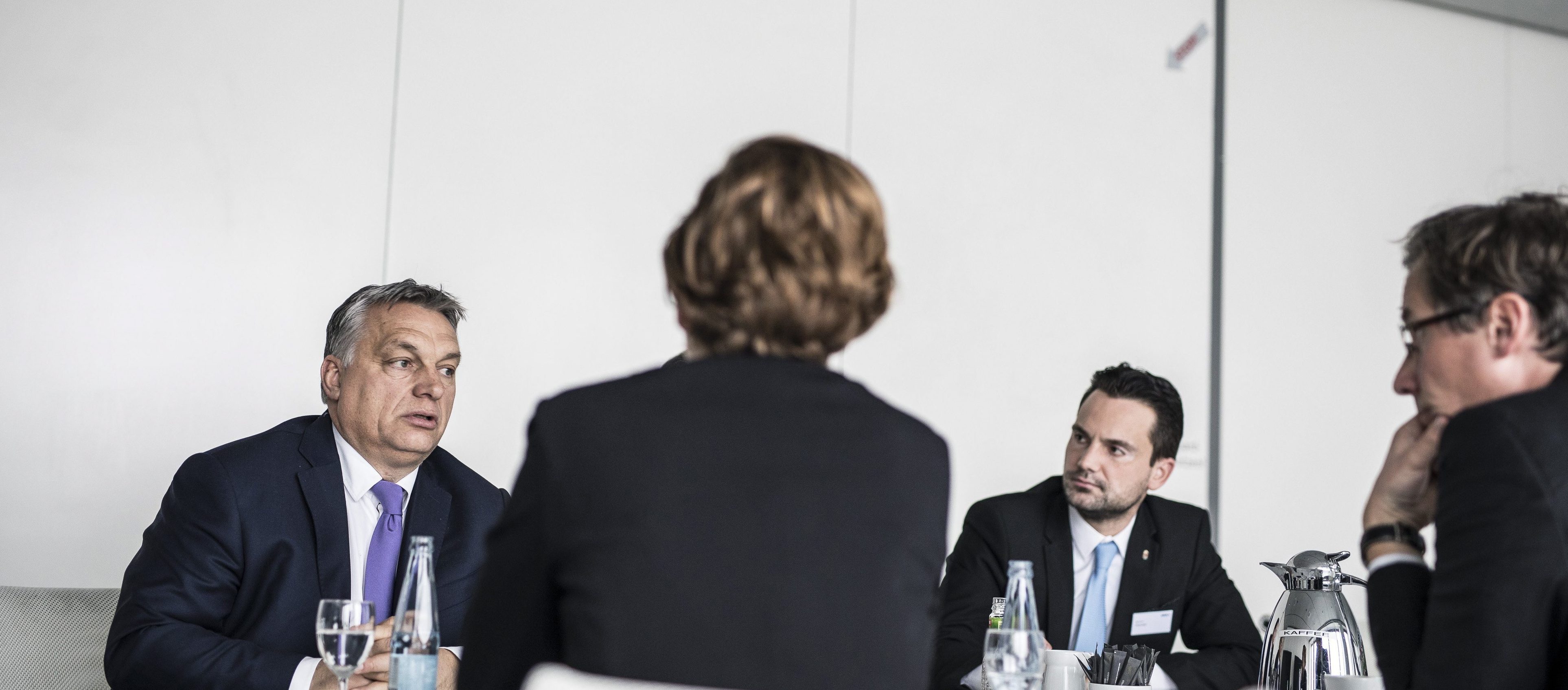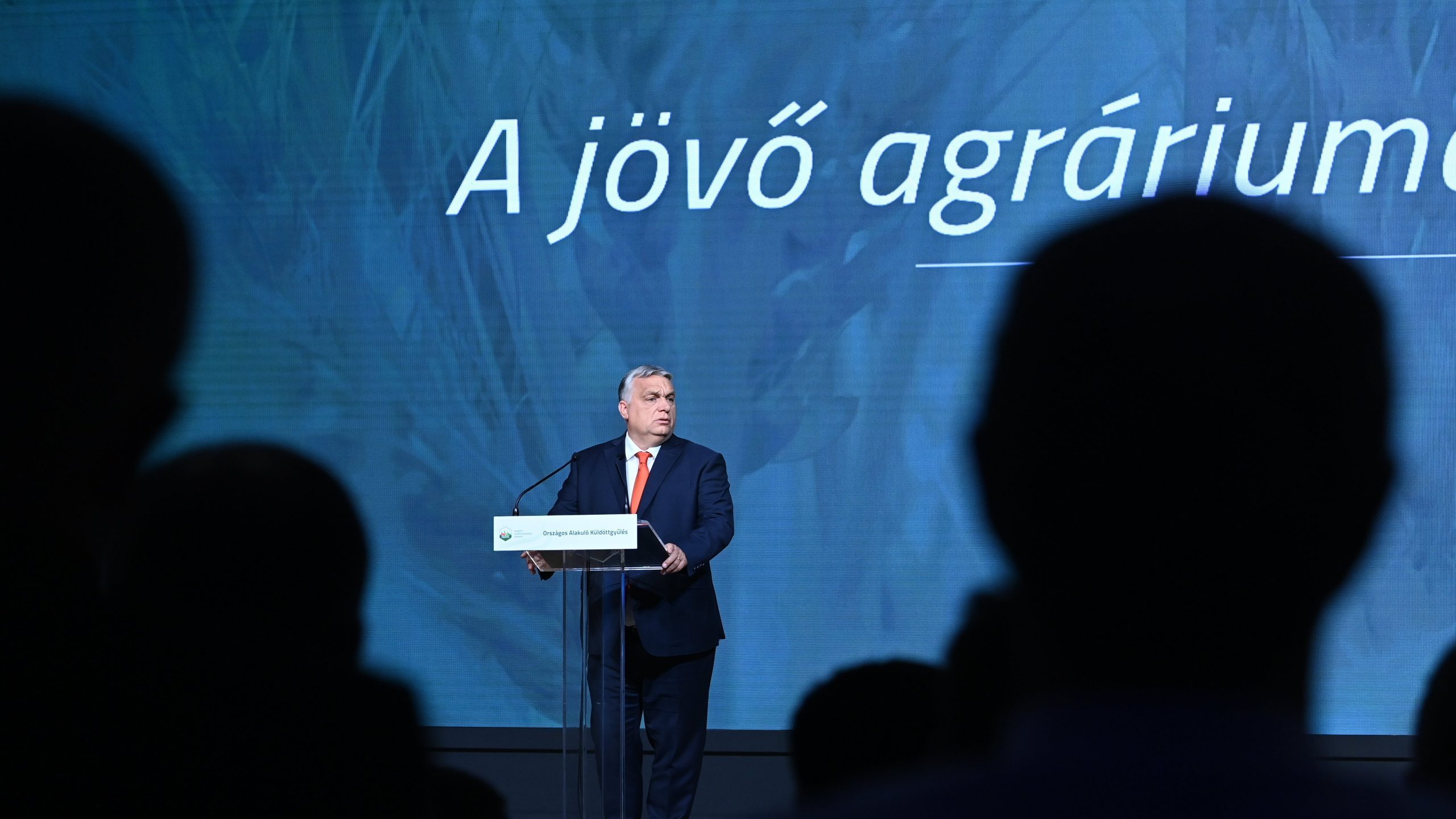
The Prime Minister pointed out that he is in agreement with Pope Francis that the EU must help refugees on the basis of Christian love of one’s neighbour, but the question remains as to how to help them.
Syrians fleeing for their lives have the right to enter the first safe state they arrive in, the Prime Minister added, but the EU “let them march into Europe, and suspended all our laws to allow this”.
These people are not coming from war zones, he stressed: “they just want to live better lives here than they could in Africa or Asia; therefore, rather than bringing migrants here, help should be taken there”.

The Prime Minister went on to say that Hungary is “more sensitive to the issue of migration than Germany”, because it lies in a danger zone. Therefore, when “masses of people enter the country, the alarm bells start to go off here”.
“We are showing solidarity, and yet we are being criticised for this; we have soldiers at the EU’s borders and this has cost us one billion euros so far. But what are Brussels and Berlin doing? They have not paid us a cent, and yet they castigate us”, Mr. Orbán said.
“We shall not let Brussels tell us who we must take in”, The Prime Minister said: only Hungary may decide on who can stay on Hungarian soil.
Provided that this principle is respected, he said, “we are happy to participate in an asylum system”.
He added that one of the EU’s greatest achievements is Schengen, “especially for us Hungarians, who have come from a dictatorship, and particularly value this freedom. If, however, we cannot protect the external borders, then our internal borders must be closed.”
In answer to a question on what it means for him to be European, Mr. Orbán said that being European is part of Hungarian identity, which is a combination of Eastern traits and Christian and European culture.
Europe, however, is “not in Brussels, but in Berlin, in Budapest, in Warsaw and in Paris”, he stated, although he added that “I do not criticise Brussels, but Brussels politicians and bureaucrats – who act as if they were the centre of an empire”.
Instead, he said, the Government of Hungary wants an EU with a parliament of limited powers, with “a strong Council” of heads of government, and with a “Commission which, rather than making policies, should remain the guardian of the Treaties”.
He added that he wishes the Government of Warsaw strength and patience in its disputes with Brussels.
Mr. Orbán also said that there is a “mutual lack of understanding” between the East and the West concerning the issue of liberal democracy and the rule of law: Hungarians speak a “traditional and direct language”, while in the West they perceive themselves as being post-national and post-Christian, calling this “liberal” and “the rule of law”.
“We do not want this”, Mr. Orbán declared, adding that “We want our national and Christian identity”.
Regarding his relationship with Vladimir Putin, Mr. Orbán said that in order to be considered a good European, “one must call the Russian president the devil”, yet it is “foolish to demonise Mr. Putin”. We must acknowledge that he has made his country strong, and a player in world politics again, the Prime Minister said, yet the EU still fails to comprehend that “both strength and willingness to cooperate should be demonstrated towards Russia”. Europe’s policy on Russia, he added, is “bad, because it is too one-sided”.
Concerning his attitude to Germany, the Prime Minister emphasised that he has always respected the chancellor of the day, “even if at present this respect is not reciprocated”.
However, he stated that “most of us still have a lot to thank Angela Merkel for”, because “she prevented efforts which might have destroyed Europe economically”, by making “negligent” EU countries put their houses in order.
Speaking about non-governmental organisations, Mr. Orbán said that the new Hungarian legislation on their operation is based on an American model. Only organisations related to the Soros network are complaining, he added, because now they must disclose what they had preferred to conceal: that they are being financed by George Soros.
The Soros network is seeking to dismantle the border fence and change immigration policies, Mr. Orbán said, “and this is a kind of border violation which we cannot tolerate”.
The newspaper referred to anti-Semite hostility being part of this dispute. The Prime Minister called this a lie, explaining that one of the tactics of the European left is to stigmatise politicians of the right as anti-Semitic.

In Hungary, he observed, there is zero tolerance on anti-Semitism. He noted that a Jewish person wearing a kippah may freely walk the streets of Budapest without fear of harassment. He asked where else in Europe such freedom is now possible.
Asked about the state of the media, Mr. Orbán said that the work of journalists critical of the Government is not hindered in any way, and that there are at least as many media outlets critical of the Government as those that support it. The problem, he said, is that the “opposition is weak, and this is frustrating for leftist journalists”.
Speaking about investigations by the State Audit Office, Mr. Orbán said that political parties acting carelessly when financing election campaigns must expect legal consequences, and as president of Fidesz he has always ensured legal administrative practice.
Regarding the issue of employment in the EU, he pointed out that he welcomes young people gaining experience abroad, although it is important for them to one day come back. In this respect 2017 was reassuring, he said.
Mr. Orbán highlighted that Hungarian economic growth is in the interest of Europe, adding that “now many people may smile when I say that Germany and the Visegrád states will be Europe’s determining economic axis, yet from 2030 we will be financing the EU budget, together with Germany”.


